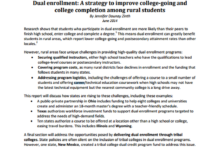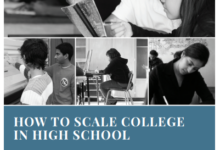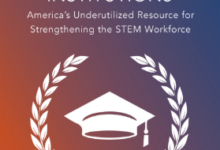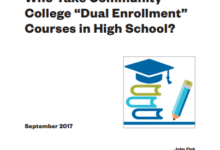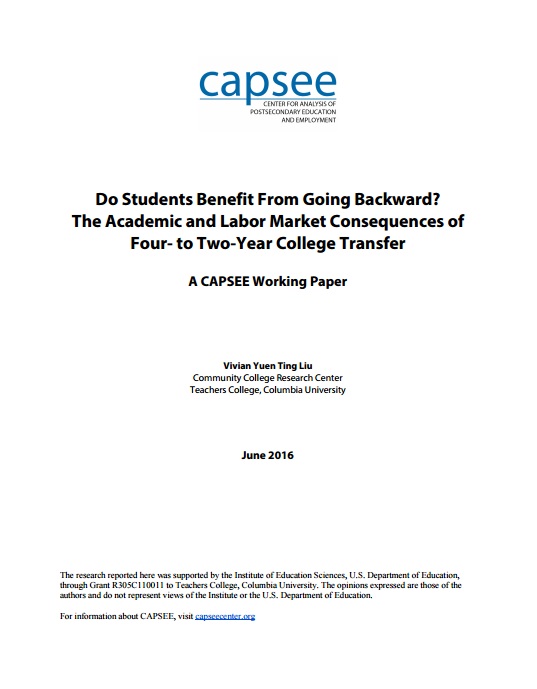This research study from the Center for Analysis of Postsecondary Education and Employment (CAPSEE) examines academic and labor outcomes for struggling students in an unnamed state who transfer from a four-year to a two-year postsecondary institution (also known as “4-2 transfer students”). The study finds that struggling 4-2 transfer students are more likely to earn a postsecondary credential than similar students who do not transfer. What’s more, these students were no less likely than similar students to earn a bachelor’s degree and had similar earnings and employment rates. The study urges policymakers and administrators to consider policies that would provide and facilitate transfer opportunities for struggling students.
Access and EquityDual Enrollment, Articulation and Transfer
This policy brief from the Education Commission of the States explores strategies for expanding access to dual enrollment opportunities…

